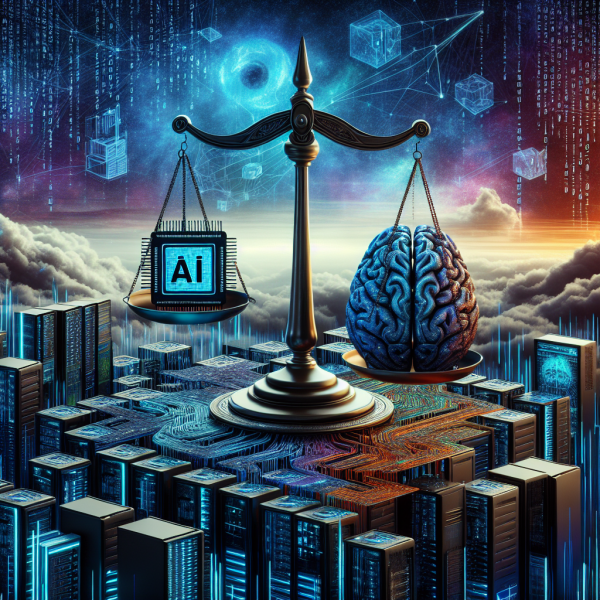Navigating the Ethical Minefield: The Urgent Need for AI Regulation in the Digital Age

As artificial intelligence (AI) rapidly permeates every aspect of our lives, from healthcare to finance, the conversation around ethical considerations and regulatory frameworks has never been more critical. While AI promises efficiency and innovation, it also raises a myriad of ethical dilemmas and societal concerns that demand immediate attention. The urgency for establishing clear regulatory guidelines cannot be overstated, as we tread cautiously through this ethical minefield.
Understanding the Ethical Landscape
AI systems are designed to process vast amounts of data to identify patterns, make predictions, and even facilitate decision-making. However, these capabilities can lead to significant ethical issues such as bias, accountability, transparency, and privacy violations. For instance, algorithms trained on biased datasets can perpetuate discrimination, affecting marginalized communities and further entrenching social inequalities.
One of the most glaring examples of this is seen in facial recognition technology, which has demonstrated higher error rates for people of color compared to white individuals. These biases not only impact individual lives but also have broader implications for public trust in technology and institutions.
The Call for Accountability
Another ethical concern is accountability. Who is responsible when an AI system makes a mistake? Is it the developers, the companies that deploy the technology, or the users themselves? This ambiguity can lead to significant legal and ethical dilemmas, particularly in high-stakes environments such as healthcare, where AI systems are increasingly making diagnostic or treatment recommendations. Without clear regulations, victims of AI-related errors may find it challenging to seek recourse or compensation, limiting justice in an increasingly digital society.
Transparency and Explainability
For AI to gain public acceptance, transparency is vital. Algorithmic “black boxes” often prevent users from understanding how decisions are made, leading to a lack of trust. To address this concern, regulations must mandate a level of explainability. Stakeholders, including users and affected individuals, should have the right to understand not only how AI systems function but also the rationale behind specific decisions. Countries that succeed in implementing these regulations will likely see increased public acceptance and better outcomes from AI deployments.
Privacy Concerns in the Age of Data
Privacy is another pressing issue. AI systems require vast amounts of data to learn, often leading to the collection and analysis of sensitive personal information. Data breaches and unauthorized data use are prevalent, raising questions about user consent and data protection. Ethical AI development must prioritize user privacy, ensuring that individuals have control over their information and that data usage is transparent and consensual.
Global Regulation: A Collective Responsibility
Given the global nature of technology, any regulatory framework must transcend national borders. International cooperation is essential to develop standards that ensure ethical AI practices. Organizations like the United Nations and the European Union have begun discussions on AI ethics, but a cohesive, globally recognized set of guidelines remains elusive.
A collaborative approach among nations can help establish harmonized regulations that address the complexities of AI technology without stifling innovation. This cooperative model can foster an environment where ethical considerations are integrated into AI development from the outset, promoting responsible deployment and reducing harm.
Balancing Innovation with Ethics
While regulation is imperative, it is also essential to strike a balance between fostering innovation and protecting societal values. Overregulation can hinder technological advancement, stifling the creativity that drives the sector. Policymakers must engage with technologists, ethicists, and society at large to create frameworks that promote innovation while safeguarding ethical standards.
One approach could involve regulatory sandboxes—controlled environments where AI technologies can be tested and evaluated under regulatory oversight. This model allows for the exploration of innovative applications while ensuring that ethical considerations are met.
Conclusion
As we navigate the complexities of the AI landscape, the need for thoughtful and comprehensive regulations has never been more urgent. Ethical considerations must be at the forefront of discussions, ensuring that technological advancements enhance, rather than exploit, human potential. By fostering accountability, transparency, and cooperation, we can build a future where AI serves humanity ethically and equitably. The time to act is now; the stakes are too high to ignore the ethical implications of our digital age.














